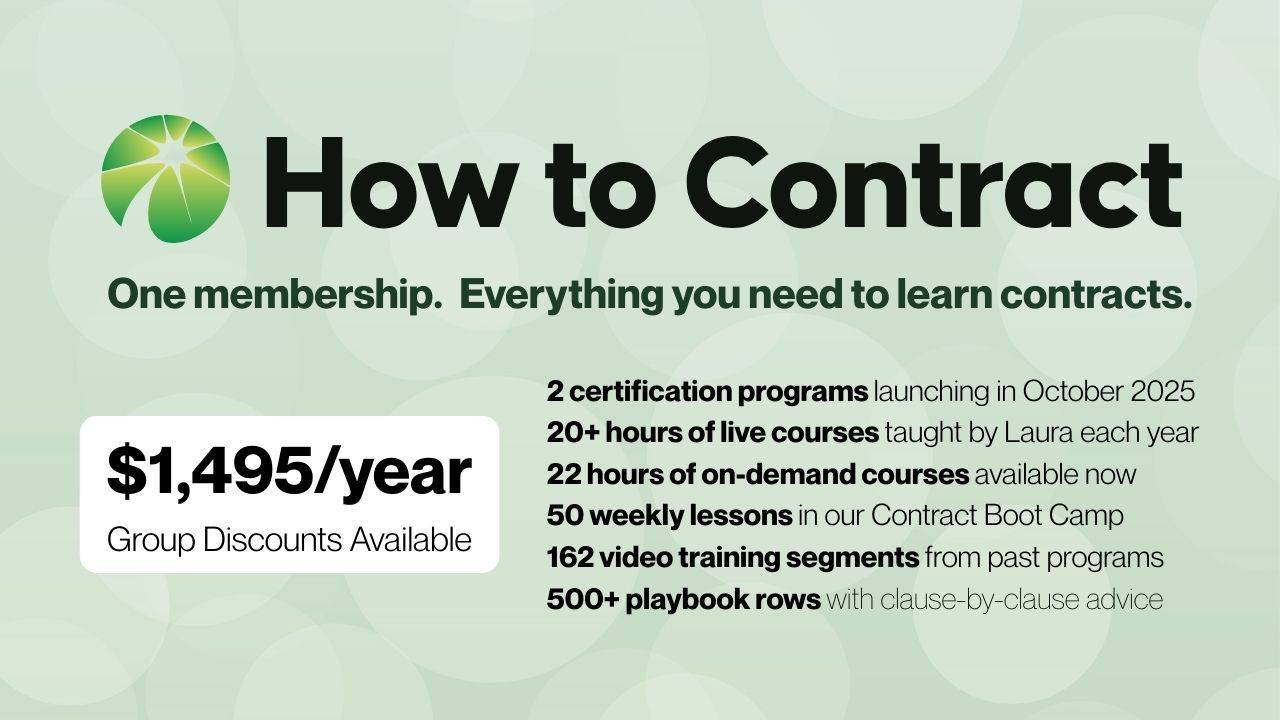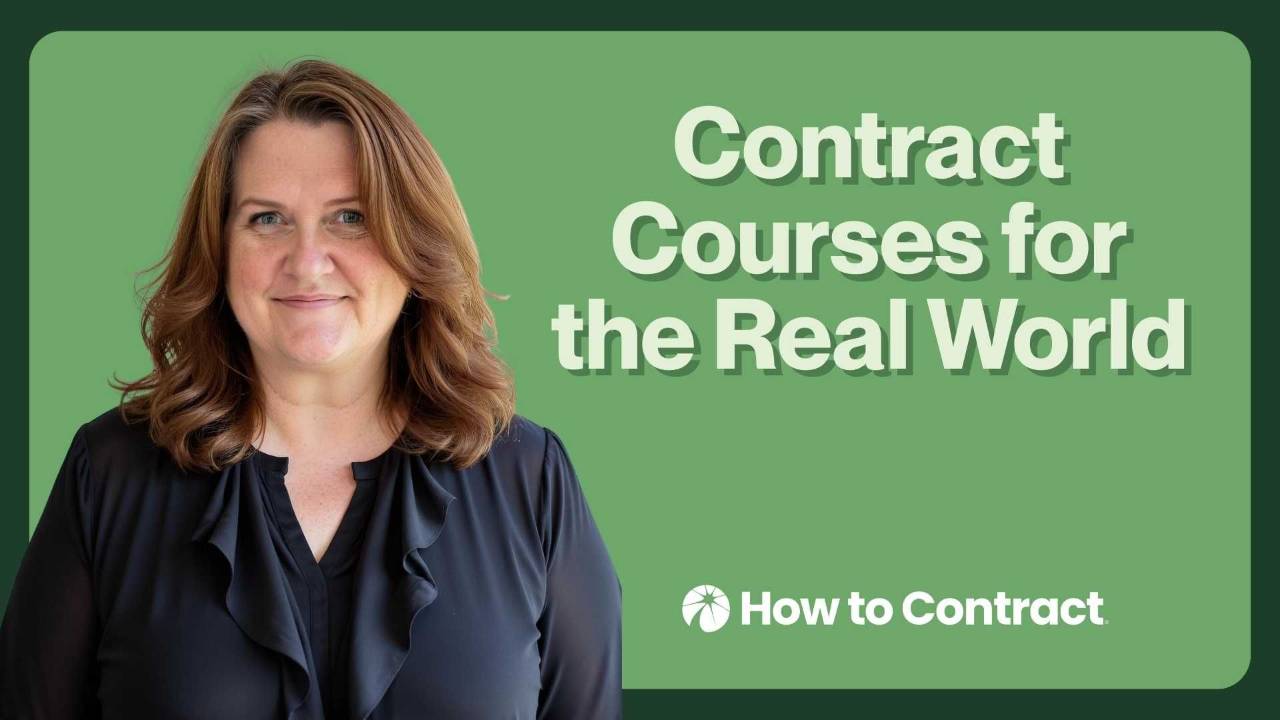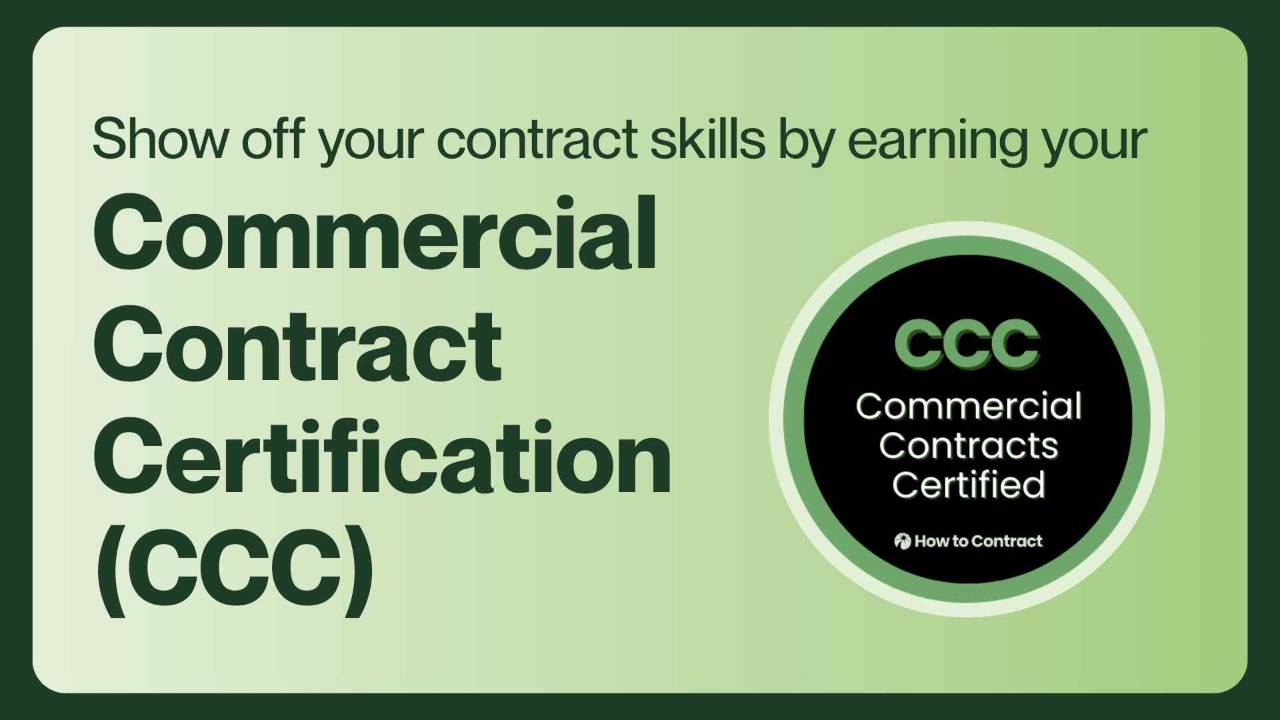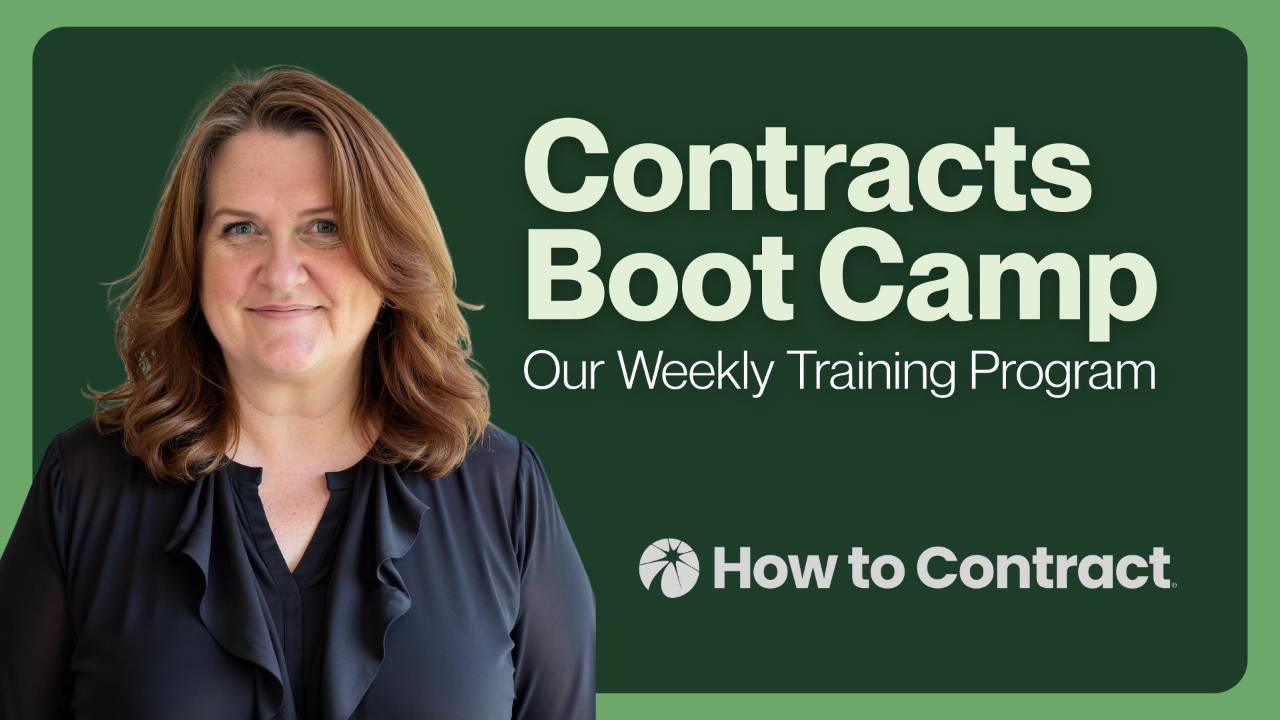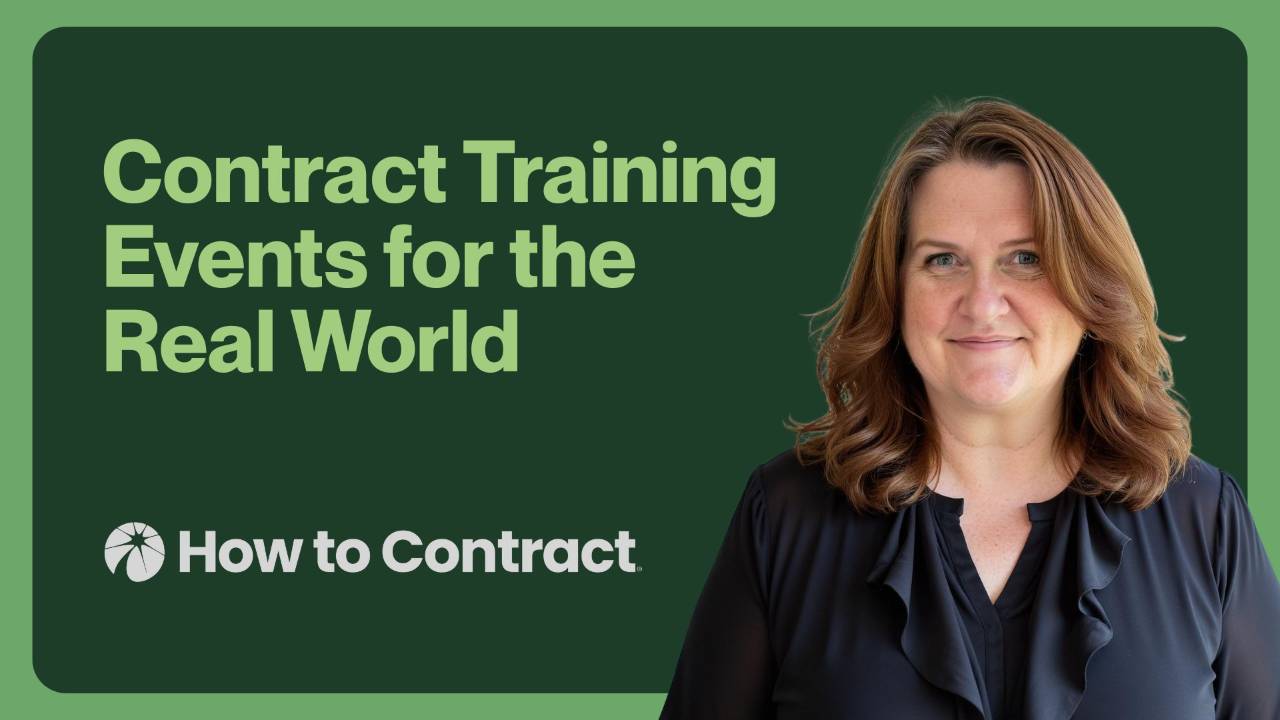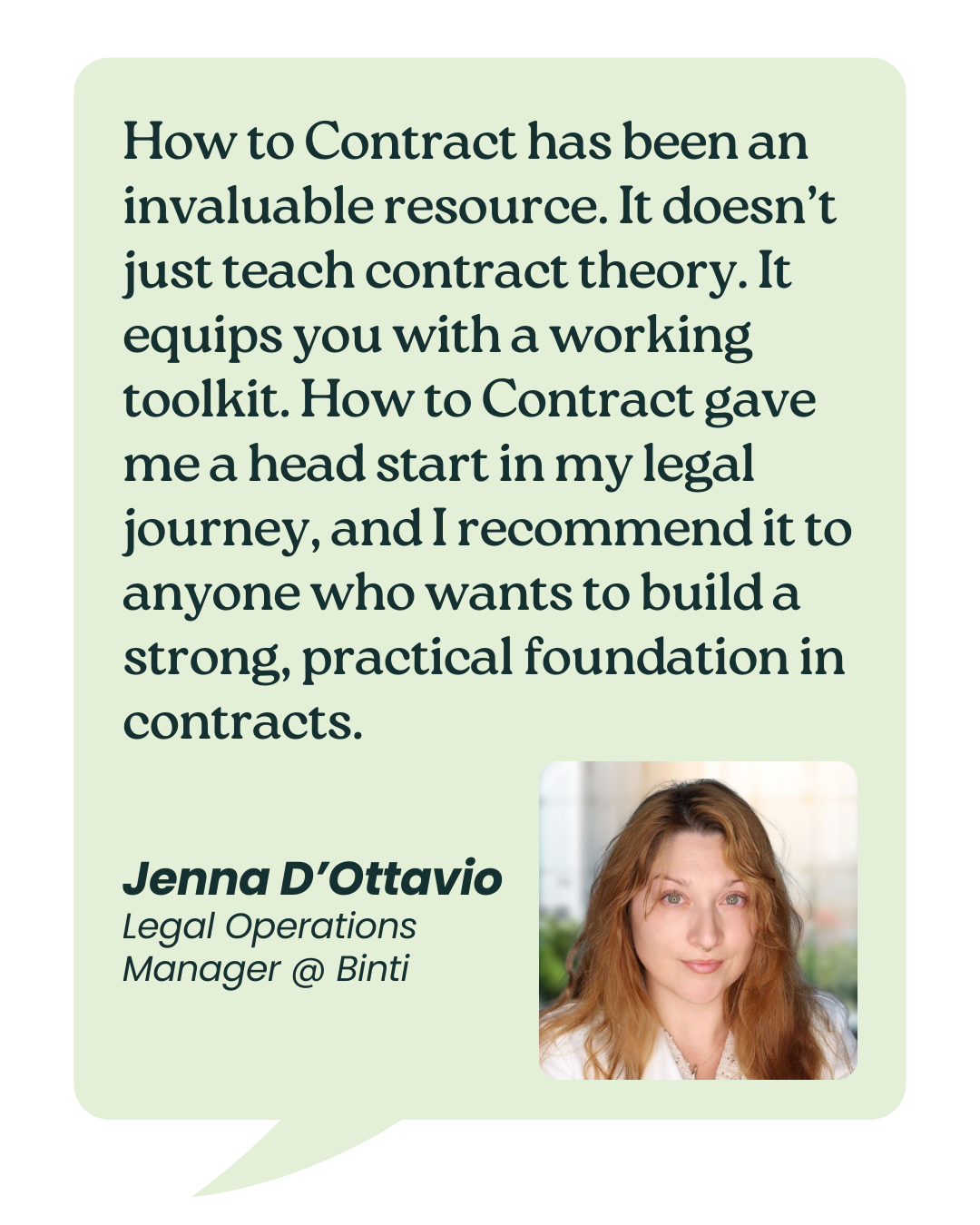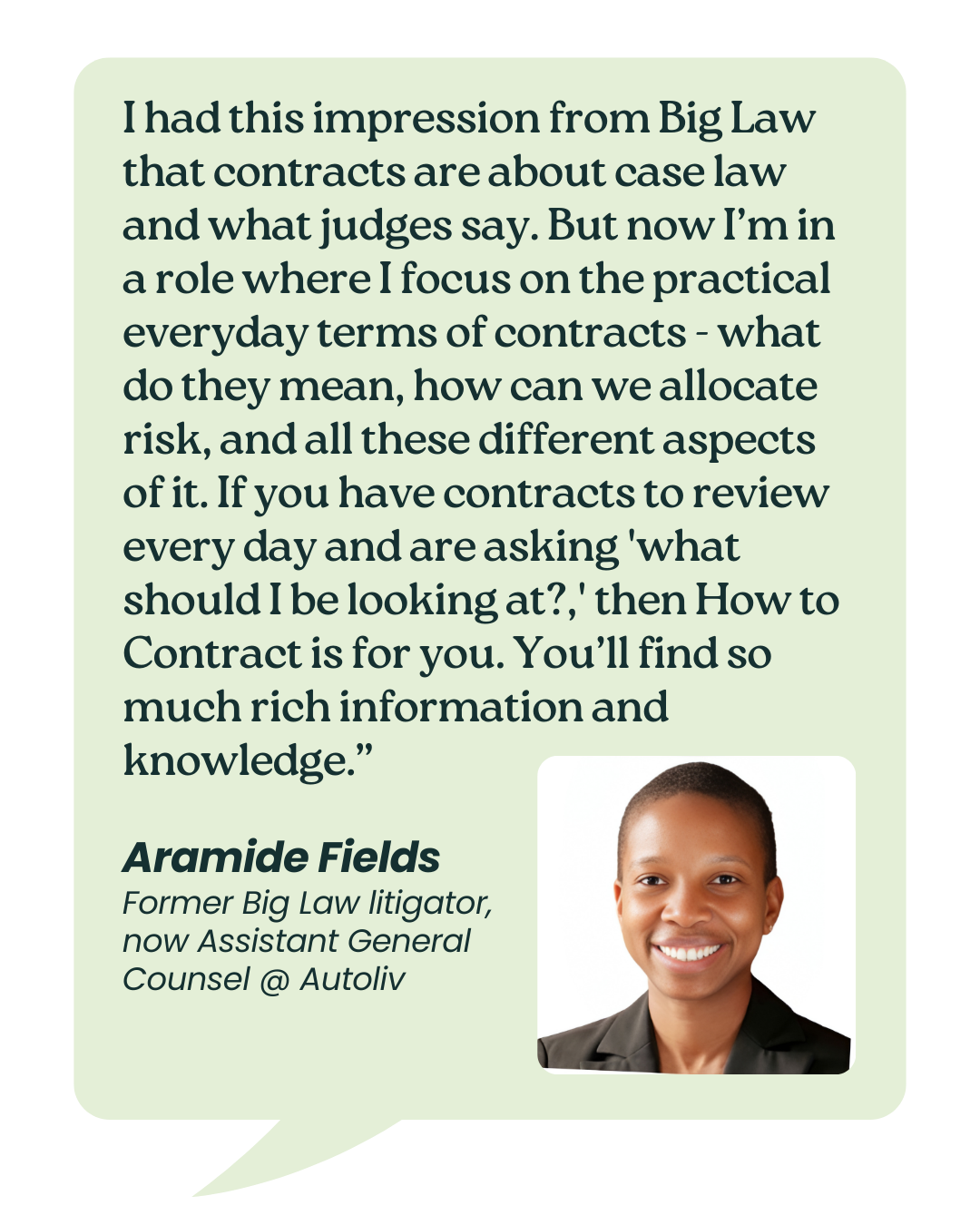
How I Contract: Jonathan Fennell, General Counsel at MD Alliance
This interview is part of our How I Contract interview series. We talk to lawyers and professionals about how they approach balancing legal risk with business objectives. In this interview, we talked to Jonathan Fennell, General Counsel, VP of Compliance and HR at MD Alliance, and a litigator turned generalist.
He has "led a company through a 9-figure exit, handled M&A and real estate deals, led a response to a data breach involving tens of thousands of patients, and advised Boards and executive teams on internal and external risks of all types."
Jonathan's rules are:
"Show up daily.
Do excellent work.
Add value (move the ball down the field).
Support and encourage people around me.
Keep my sense of humor.
Make sure my wife and kids know I love them daily."
Overcoming Early Challenges in Contract Work
If you could go back in time, but keep all the knowledge and experience you have now, how would you deal with your biggest challenge from when you started working with contracts?
Keep the big picture in mind, know who has leverage (e.g., there’s only so much you can negotiate in a payor contract), and know what you can hope to achieve.
Personalize the process to the extent you can. If possible, pick up the phone and talk to the other side at the outset to set a cordial tone.
Evolving Contract Drafting Techniques
How have your contract drafting techniques changed over the years? What did you stop doing? What did you start doing?
Drafting techniques: I’ve ditched as much legalese as possible and opted for a business tone to the extent possible. I also try to limit my defined terms to only what is essential instead of defining every possible term.
I stopped getting into the weeds and minutia in others’ papers (though I am still prone to correct certain things when I see them).
Focus on making it legible. Use shorter sentences. Active voice. Minimize subordinate clauses.
Lessons for My Younger Self in Contracting
Imagine sharing a contract-related story from your career to inspire or educate your younger self. What would that story be?
Don’t get stuck in the contract.
Years ago, an employer had mismanaged a vendor relationship and ended up in a spot where it was paying $100K/month for leasing and maintaining printers and copiers.
By the time I got to it, the vendor’s contract painted us into a corner and left us no leverage at all (liquidated damages, no equipment, etc.).
I engaged a competitor, which led to learning about the industry and ultimately renegotiating the contract so we owned the devices and paid about a third of the amount in a new term.
Key Lessons Learned in Contracts
What’s your biggest lesson learned in contracts?
The contract reflects a relationship at a point in time.
The parties are always free to amend/correct, so focus on the health of the relationship.
Contract issues end up in court only when the parties cannot work through an issue.
Avoiding Common Contract Mistakes
What common mistakes should contract lawyers and professionals avoid when working with contracts? How would you avoid them?
[One of the most common mistakes is — note by HTC] thinking of the contract as a zero-sum game.
It is a relationship.
Make it too onerous, and those who have other options will exercise them.
The contract process shouldn’t be more painful than it has to be.
Memorable Mistakes and Learning Moments
What’s the most memorable mistake you’ve made when working with contracts? How did you deal with it? What did you learn from it?
Nothing jumps out. I’m sure there have been plenty of mistakes.
Never bury a mistake. Escalate it immediately and work on mitigating it.
Understanding the Business You Represent
What is the best way to understand the business you represent? Could you share specific steps? What questions do you ask?
Read everything — financial audits, annual reports, business plans, financials, etc.
Talk to people — if possible (depending on your title and the chain of command), meet with department heads. And ask questions:
What product/service do we provide?
Who is our target audience?
What is our price structure? How do we set prices? What is our margin?
How do we land customers?
What markets are we in? Do we want to be in? Why?
Who has direct interaction with customers?
How do we market? What distinguishes us?
Practical Tips for Drafting and Negotiation
Are there any simple hacks our readers can use right away to improve their contract drafting and negotiation skills?
Drafting
When proofing contracts, or litigation, I recommend reading it backwards at least once to catch the things the mind can subconsciously gloss over. Not word by word, but sentence by sentence. Obviously, this doesn't work for flow, but it helps catch things.
Force yourself to slow down when reviewing it. Take out filler words. Have a checklist and make sure your contract covers what it needs to cover.
Negotiations
Know what your critical terms are and be willing to push back on anything. Also, remember that “internal policy” means nothing to the other side.
I've heard people invoke their internal policy as a reason for a position.
Two sides both invoking "internal policy" obviously won't get anywhere if they hold that position.
Policies exist for a reason, so the goal should be to address those underlying reasons and show why the proposed language does not violate the spirit of the policy or how to mitigate any concerns that could be deal breakers.
Be sensitive to why people take positions.
Also, know who can make things happen on the other side (usually if someone with enough seniority wants the deal done, it will get done — and any legal objection to technicalities and potential risks will be noted).
Challenging Myths About Contract Work
What’s the biggest myth about contracts or working with contracts you’ve ever heard?
That it is a dry, transactional practice area.
Influential Mentors in Contract Work
If you could give a shoutout to one (or more) person who has influenced your life in contracts (or is your mentor), who would that be?
My background is in litigation, so my contracting knowledge is based on what went wrong; otherwise, I am mostly self-taught.
Michael TerBeek has been a steady influence on general business matters, including contracts.
Advice for Self-Taught Contract Professionals
As you're self-taught in contracts, could you share advice on how one should approach contracts when they're starting out?
Strip down the contract to its essential purpose and question every word, phrase, and clause in it.
How do the parts relate to each other, if at all, and how do they support the overall objective of the contract?
Sometimes I included a brief statement of the parties' intent (i.e., the big picture) in opening recitals, just to bring my focus back to the "what are we doing here."
The Biggest Challenge for a Generalist
What interview question would you like to be asked and how would you answer it?
"What’s the biggest challenge for a generalist who has to handle everything, including contracts?"
Time and resources.
Start by establishing timelines and understanding expectations.
Also, understand that someone at the company may have a relationship with the other side, and the contracting process should not threaten that relationship.
Recommending the Next Interview Candidate
Who should we interview next? Why?
She’s just a phenomenal person and responsible in part for me landing my last two jobs.
Thank you, Michael, for all your great advice.
How to Contract's membership is designed to help you build real-world expertise with commercial contracts. Get access to our comprehensive system of live and on-demand courses, weekly lessons, detailed playbooks, and more. Join today!

